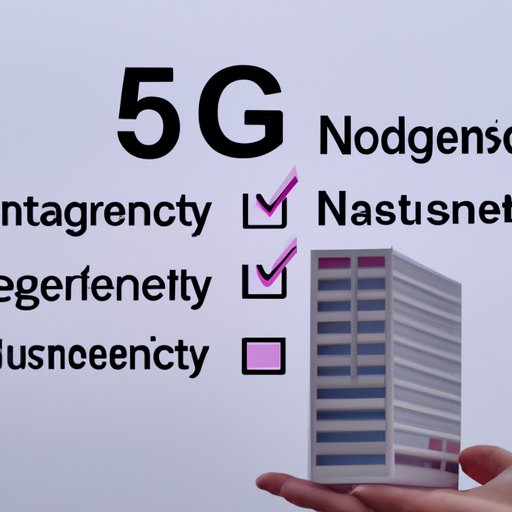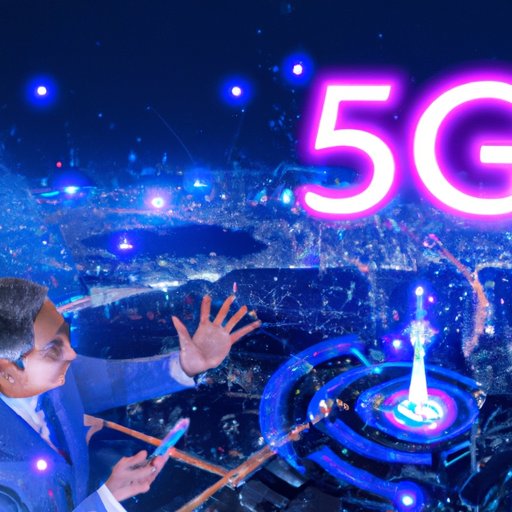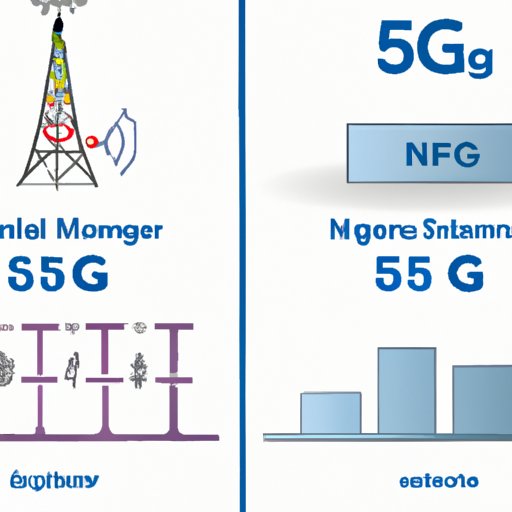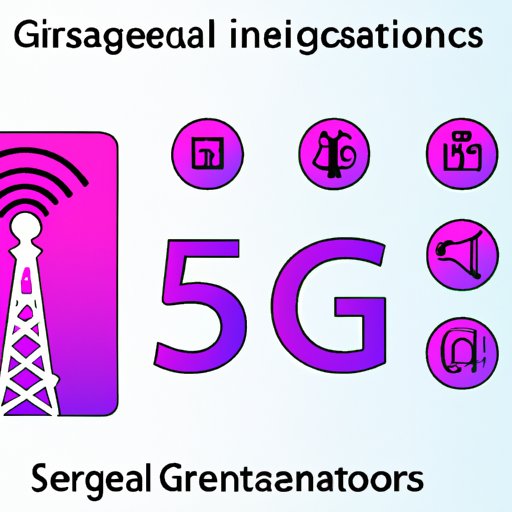Introduction
5G technology is the fifth generation of cellular networks and the latest development in the world of mobile telecommunications. It is a revolutionary upgrade from 4G networks that promises to bring unprecedented levels of performance, speed, and efficiency to mobile devices. 5G technology offers a wide range of potential benefits, including increased data capacity, improved network speeds, lower latency, enhanced customer experiences, improved business efficiency, and increased productivity. In addition, 5G networks offer greater security than previous generations of mobile networks.
Benefits of 5G Technology
The most notable benefit of 5G technology is the increased data capacity it provides. 5G networks are capable of providing up to 10 times the speed of current 4G networks, allowing users to download large files quickly and stream high-definition video without buffering. Additionally, 5G networks have the ability to support more devices at once, making them ideal for activities such as online gaming or virtual reality applications.
In addition to increased data capacity, 5G networks offer improved speeds compared to existing mobile technologies. According to research conducted by Ericsson, 5G networks can reach speeds of up to 20 Gbps, which is significantly faster than current 4G networks that typically peak at around 1 Gbps. This improved speed allows users to access information more quickly, which can be especially beneficial for businesses that rely on real-time data.
Finally, 5G networks offer lower latency, or the time it takes for data to travel from one point to another. This reduced latency can be especially useful for applications such as autonomous vehicles, where quick response times are essential for safety. According to a study by Qualcomm, 5G networks have the potential to reduce latency by as much as 90%, making them an ideal choice for applications that require fast response times.

Potential Uses of 5G Technology
One of the most promising potential uses of 5G technology is in the development of smart cities. Smart cities are urban areas that use technology to improve the lives of citizens by providing better public services, such as transportation and healthcare. 5G networks could provide the necessary infrastructure to enable smart city applications, such as connected traffic lights, automated waste collection, and remote monitoring of air quality.
Another potential use of 5G technology is in the development of autonomous vehicles. Autonomous vehicles rely on a combination of sensors, cameras, and GPS systems to navigate roads safely. 5G networks could provide the necessary data connection to enable these systems to communicate with each other and the cloud, allowing vehicles to respond quickly to changing conditions and avoid collisions.
Finally, 5G networks could also be used to enable connected health care. Connected health care involves using technology to monitor patients remotely and provide personalized treatments. 5G networks could provide the necessary bandwidth to enable doctors to monitor patient data in real time, allowing them to make more informed decisions about a patient’s care.

Impact of 5G Technology on Businesses and Consumers
The introduction of 5G technology has the potential to revolutionize the way businesses and consumers interact with each other. For businesses, 5G networks could enable more efficient operations and provide enhanced customer experiences. For example, 5G networks could allow businesses to deploy location-based marketing strategies, as well as provide more reliable and secure connections for customers.
For consumers, 5G networks could provide faster speeds, lower latency, and improved video streaming capabilities. Additionally, 5G networks could enable new applications such as augmented reality and virtual reality, allowing users to experience more immersive and engaging content.

Comparison of 5G Networks to Existing Mobile Technologies
When comparing 5G networks to existing mobile technologies, there are three key areas of difference: speed, bandwidth, and security. 5G networks offer significantly faster speeds than current 4G networks, reaching speeds of up to 20 Gbps. Additionally, 5G networks offer increased bandwidth, allowing more devices to connect simultaneously. Finally, 5G networks offer improved security compared to previous generations of mobile networks, ensuring that data is protected from unauthorized access.
Security Implications of 5G Technology
While 5G networks offer improved security compared to previous generations of mobile networks, there are still some security risks that need to be addressed. Network protection is an important consideration for any organization deploying 5G networks, as they must ensure that their networks are secure from malicious attacks. Additionally, companies must ensure that the data they collect and store is kept secure and private, in accordance with applicable laws and regulations.
Finally, there are also potential security risks associated with the use of 5G networks. As 5G networks become more widely deployed, they could be targeted by malicious actors seeking to gain access to sensitive data. To mitigate this risk, organizations must ensure that their networks are properly secured and monitored.
Future of 5G Technology
The future of 5G technology is bright, with global expansion planned for the next few years. According to the GSMA, 5G networks are expected to cover 65% of the world’s population by 2025. As 5G networks become more widely available, new applications and services will emerge, enabling users to experience faster speeds, lower latency, and improved security.
However, there are still some potential challenges and obstacles to the widespread adoption of 5G technology. For example, some countries may face difficulties in terms of spectrum availability and cost, while others may struggle with regulatory issues. Additionally, 5G networks require more power than current 4G networks, meaning that some areas may not be able to support 5G networks due to lack of access to reliable power sources.
Conclusion
5G technology is a revolutionary advancement in the field of mobile telecommunications. It offers increased data capacity, improved speeds, lower latency, enhanced customer experiences, improved business efficiency, and increased productivity. Additionally, 5G networks offer greater security than previous generations of mobile networks. The future of 5G technology looks promising, with global expansion planned for the next few years and new applications and services emerging as 5G becomes more widely available.
(Note: Is this article not meeting your expectations? Do you have knowledge or insights to share? Unlock new opportunities and expand your reach by joining our authors team. Click Registration to join us and share your expertise with our readers.)
